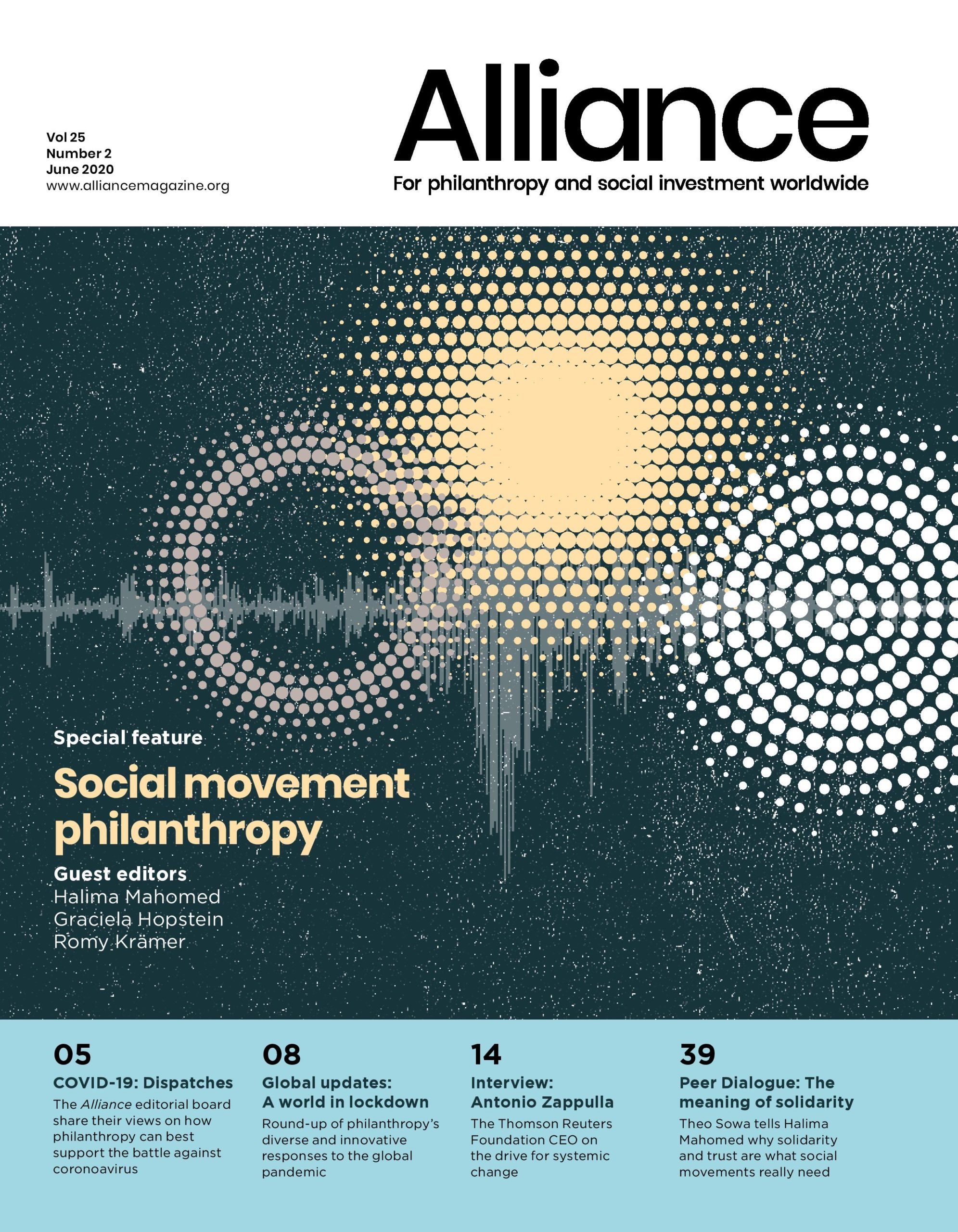Philanthropy can be an effective ally for social movements if the two can develop relationships based on trust
I was born and raised in The Gambia, which for 22 years was ruled by the world’s most brutal dictator, Yahya Jammeh, a man who could order his opponents killed and have their bodies cut into pieces to be fed to crocodiles. My introduction to organising took shape under his violent regime. I started in school clubs and then created my own youth groups with friends. I was later exposed to strategic organising, campaigns, and movement building through the work of ActionAid – Activista.
It would facilitate movement-philanthropy relationships if we were able to work with funders in a similar way – relationships based on trust, flexibility and agreed-upon intermediary support.
From this experience, I realised that governments in Africa fear two things: mass movements of people fighting for a common agenda and an organised media with great reach. Governments respond quickly to these because they fear their ability to provoke change. Therefore I put my energy into building social movements in my country and across Africa and the diaspora. I have primarily focused on organising young activists to end poverty and empower women through initiatives like women assemblies for land and food rights. Through the work of our movement, #GambiaHasDecided, we also managed to kick out Jammeh in 2016 after he refused to step down when he lost the elections.
I now work at Africans Rising. In the recent past, young people like me have fought to end corrupt and brutal leadership in Tunisia, Burkina Faso, The Gambia, Sudan, and elsewhere. These activist and citizen movements give us hope in our effort to amplify and connect the struggles of our people through the spirit of Ubuntu – solidarity in a pan-African citizen-led movement.
However, our activism is often challenged by limited funding or by funders’ requirements. Movement leaders are primarily concerned with the urgency and need for mobilisation rather than donor requirements. We work from our passions and build trust among one another, which is one of our mechanisms for holding each other accountable. It would facilitate movement-philanthropy relationships if we were able to work with funders in a similar way – relationships based on trust, flexibility and agreed-upon intermediary support.
Funders must see themselves as enablers and amplifiers of social movements. If they fail to understand this they will be seen as competitors to movements in the field of social justice work.
When allying with a social movement, philanthropists must ask themselves how to build relationships of trust. Such a relationship will mean philanthropists are then able to ask movements what kind of support they need. This will require innovation, as every struggle has its individual features, especially as my experience in Africa has been that our governments seek information on the movement of funds in order to block them. Moreover, almost no philanthropy institution has a pot of funding to support quick actions of activists or movements without accountability and controls, while movements sometimes need just a small amount of money that would allow them to act quickly (without having to go through tedious reporting and oversight processes) to effect big change. Which brings us back to the need for a relationship based on trust and flexibility.
As long as they have the courage and critical knowledge to effect change, social movements and activists will continue to lead social justice work in the communities they live in, and the time is here for the global funding community to become more innovative and strategic in supporting them. Funders must see themselves as enablers and amplifiers of social movements. If they fail to understand this they will be seen as competitors to movements in the field of social justice work.
Over the years, we have seen oppressors collaborating to close civic and political spaces and crack down on movement leaders and activists who lead social justice work. While movements often spearheaded by young people offer hope for a brighter future, this will require a collective effort from philanthropy and social movements.
Muhammed Lamin Saidykhan is movement coordinator, Africans Rising.
Email muhammedlamin@africans-rising.org
Twitter: @saidykhan08



Comments (0)